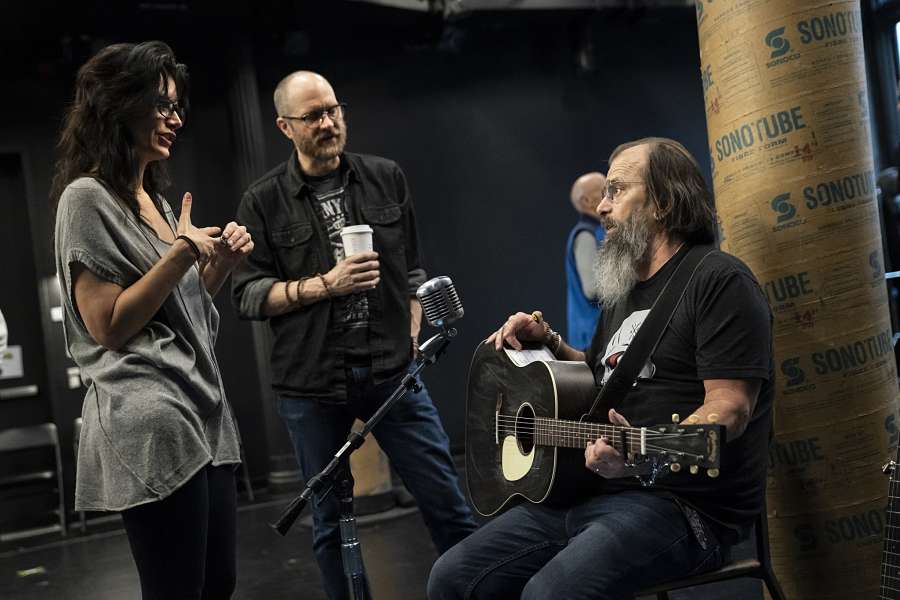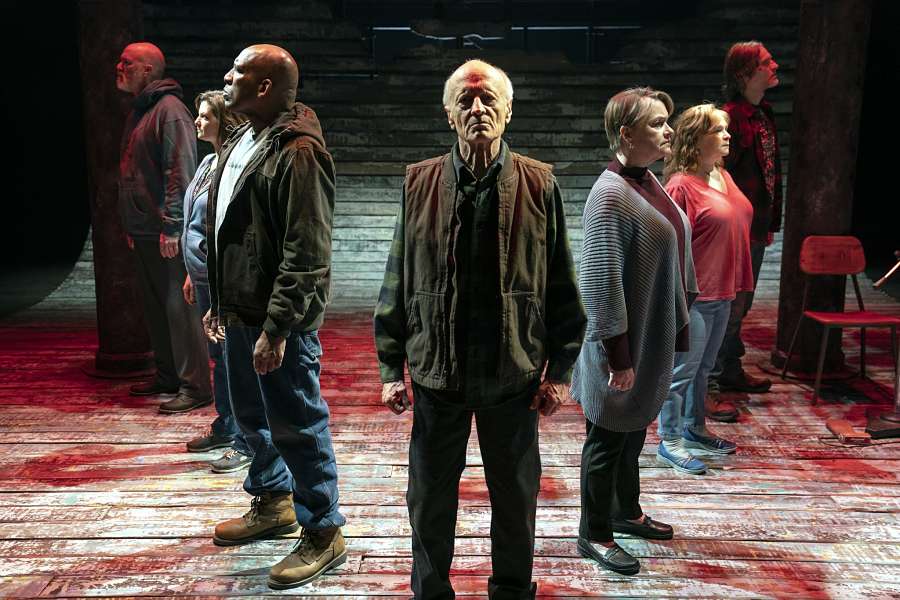
This is the first in a series of first-person reflections/responses by theatre workers to the novel coronavirus pandemic and the social distancing it has required.
Look me in the eye when you’re talking to me
Wanna see in your face when you lie
Don’t try and tell me that you couldn’t foresee
What everybody reckoned was a matter of time
—Steve Earle, “It’s About Blood,” from the play Coal Country
A deadly event that many saw coming. Protections that would prevent disaster ignored. Intentional neutering of government oversight. Failure of leadership. Isolation and powerlessness. A sense that things are crumbling around us. The knowledge that tragedy would have been entirely preventable, if it weren’t for the greed and self-interest of decision-makers at the top. The knowledge that we love forever, that loss hurts, and that music sung with all our hearts will bring us together. And unity, at least in our grief.
Those are some themes explored in our production of Coal Country, a documentary play we created with musician Steve Earle, commissioned by the Public Theater, which ran for 25 performances before the theatre closed its doors last Thursday, March 12.
The “deadly event” in the play is the 2010 Upper Big Branch Mine Disaster, an explosion that ripped 29 men from their loved ones forever. The deadly pandemic we are now all experiencing in slow motion is less sudden. But ignorance, greed, arrogance, incompetence, lies, hubris, and misuse of power got us here—and those themes are unfortunately universal and timeless. Those qualities inevitably bring disaster and its companions: pain, grief, and anger.
We discussed this with our designer, Richard Hoover, as he built a gash into the rear wall of our set. We talked about broken promises with our lighting designer David Lander as he built the colors of a tattered American flag into the lights. We were all speaking symbolically at the time. We were all convinced that this play with music was about a mine explosion and its aftermath. It was, apparently, about so much more.
Now theatres are dark. And work has gone quiet. Because the artists and audiences we love need to be safe. We will have to wait before we can come together again. And we don’t know what will happen with our work.
First productions of new plays have lifespans; they are living things. They gestate, they are labored into being, they are born into the world; and then they mature, become fully themselves, do their work. We know there’s an end—there’s always an end—but usually it comes at an expected time, after a long, full life, so the community around the play can ritualize its ending, honor it, say goodbye. Anything else feels unnatural. An interruption. Theatre is life made ritual, and a disruption of that ritual is a disruption of the order of things.
“This is the story. This is what we got back. This is what we live with. Because we’re real. What got left behind is real.” —Dr. Judy Petersen, in Coal Country
Like all the work interrupted by this crisis, this production has a long story: In spring 2016, we spent two weeks in the Coal River Valley sitting with survivors and their families. With the support of the extraordinary Public Theater, we spent the next three years turning those transcripts (plus about 50,000 pages of court transcripts and depositions) into a play, and the last four months prepping and rehearsing its world premiere production. In the years we’ve spent creating this play, our goal has been to honor the 29 men who died in that horrific explosion, and their families. Our goal was to bring their light to our lives. To build a monument to them with music. And in this first production, here in New York, to ask New York audiences to listen to and learn from West Virginia.

The people we interviewed for this play are just about the most welcoming, kindest people you’ll ever meet. They are unimaginably brave. They work hard. And they come together in times of tragedy, even when it seems the powers that be have forgotten them. Even after losing loved ones in the worst American mining disaster in 40 years, their love never dimmed. They came together to hold one another up in their grief. And they came together to demand that the powerful and corrupt be called to task.
We can learn a lot from them about dealing with this moment and what follows. We can draw solace from music, our story, standing for what’s right and our work. And we will rise, as workers, family members, advocates for a greater justice. And we in the arts community will make music and art and words that will connect us. We will call the powerful to account. We will trod the boards again. There are stories that have work to do in the world, work that’s bigger than any individual writer or director or performer.
Our job as theatremakers is to hold space for that work to happen, even when it seems impossible, even when we don’t know what it can look like. Our job is to imagine what we can’t imagine yet, and to trust that the act of imagining itself creates a path for the work to live in the world. And our job is to do that together—to support and protect each other, to care for each other and our audiences, to draw together in community, and to help each other find ways forward that we might not be able to imagine alone.
May all our stories do their work.
Erik Jensen and Jessica Blank have created the shows The Exonerated, Aftermath, Liberty City, How to Be a Rock Critic.


